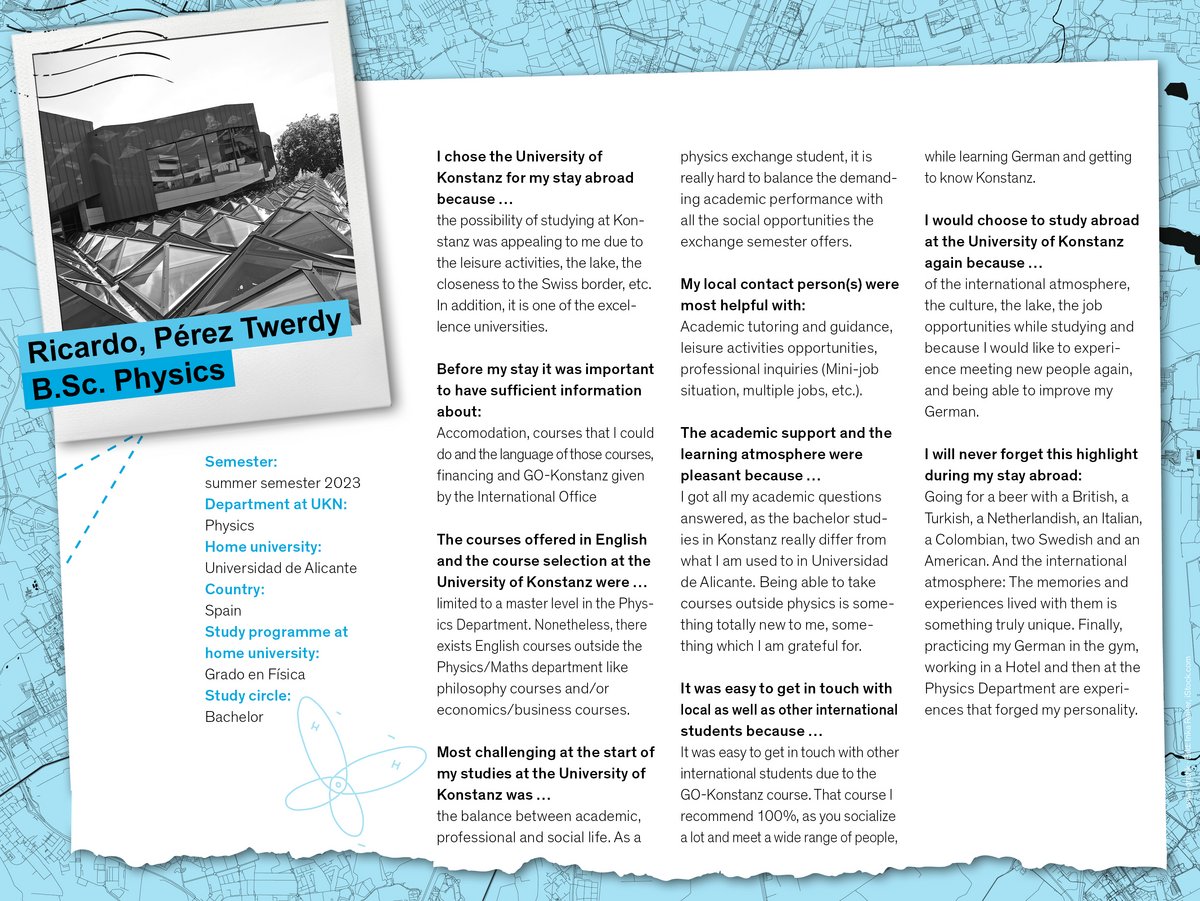About us
At the Department of Physics, about 350 bachelor's and master's students, 70 doctoral researchers as well as 41 researchers are working on numerous different facets of physics. With our open door policy, all these different groups work together closely to gain deeper insight and increase their knowledge.
Our teaching and research covers a broad spectrum of topics, including atomic electric contacts and photonics, nanostructures, sources of renewable energy, laser technology, and quantum information processing.
We offer a three-year bachelor’s programme, with a wide choice of minor subjects and a two-year master’s programme, where students are deeply involved in research activities. We offer you an attractive environment for research and study with excellent training in virtually all fields of physics - from the fundamentals up to the most cutting-edge applications.
Registering for courses and examinations
In order to take a lecture in physics, students do not have to register, they simply join by showing up at the first meeting of class. However, they do have to register in class to take part in tutorials and then register again later on to take examinations at the end of the semester. Register for examinations using the electronic student information system StudIS or by contacting the department's Erasmus Coordinator.
To attend any kind of course with a practical part you should contact the Erasmus Coordinator as early as possible. Details on each course's coursework and examinations are available in the electronic course catalogue ZEuS (for BSc, MSc or Courses taught in English MSc) or will be announced by the lecturer in the first meeting of class. This is why you should make sure to attend the first meeting of a course you are interested in, even if you are not entirely sure whether you will complete it.
Language requirements
We strongly recommend incoming students demonstrate at least German B2 (according to the Common European Framework of Reference for Languages) language skills in order to successfully complete courses in the BSc or MSc programmes. All BSc courses are taught in German, while MSc courses can possibly be taught in English upon request (please ask for more information).
Your language skills will determine which courses you can take. Students in the MSc programme are required to provide documentation of German proficiency at the DSH-2 or a comparable level. DSH-1 or comparable is sufficient, if you can document having English language skills at the B2 level.


